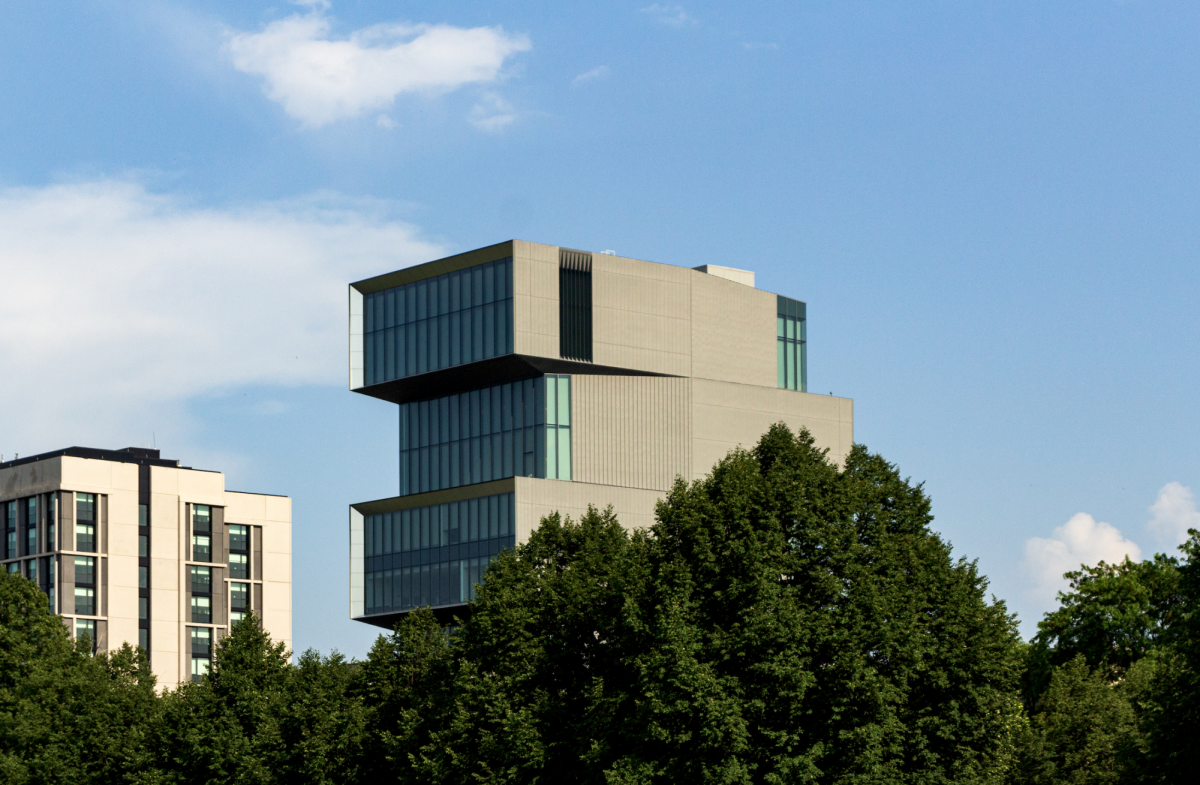The University launched its Institute for Climate and Sustainable Growth with a day-long series of programs at the Rubenstein Forum on October 30. Illinois Governor J.B. Pritzker and U.S. Senator Dick Durbin (D-IL) were among the speakers at the event, which featured a series of “fireside chats” to discuss the institute’s three areas of focus: Economics and Policy, Energy Technologies, and Climate Systems Engineering.
In his opening remarks, University President Paul Alivisatos said that the institute—with Milton Friedman Distinguished Service Professor in Economics and Director of the Energy Policy Institute at Chicago Michael Greenstone as its inaugural faculty director—“will be the University of Chicago’s central hub… to bring our best ideas and best work to a type of challenge that humanity has not faced before.”
The Institute tackles climate change and sustainable economic growth through research, education, and global collaboration. Focusing on energy policy, technological innovation, and emissions risk assessment, it equips students with climate knowledge and offers hands-on learning through research and internships. Overall, the Institute aims to integrate environmental sustainability with economic development.
Greenstone added that starting next year, courses about climate and sustainable growth will be included in the core curriculum for undergraduate students. Pending approval, there will also be a new major in the college with specializations in climate science, climate politics, climate finance, and climate technology.
At the event, Pritzker said climate change was “one of the most significant challenges our people and our planet have ever faced.”
“I have long rejected the idea that climate policy must necessarily come at the expense of economic opportunity. To the contrary, if we’re going to meet our climate goals in a reasonable amount of time, we will need to incentivize growth. We will need policies that leverage public capital with private capital, drive innovation, and fuel people with entrepreneurial spirit,” he said.
Durbin commented on the 2024 presidential election and its potential implications for climate work. “We are at a cusp, a turning point, in this country in six days. The question is where we’re going as a nation,” he said. “Here’s what I do know. If the blockheads who believe climate change is a hoax prevail, we’re going to be set back.”
The fireside chats that comprised the rest of the event centered on balancing climate initiatives and economic growth, a discussion of energy storage and the future of clean technology, and how to bridge the gap between the developed and developing world in terms of having informed and equitable conversations and efforts around climate.
As the launch was taking place, approximately 15 members of the Environmental Justice Task Force, Care Not Cops, and Students for Justice in Palestine gathered to protest outside of the Rubenstein Forum. The rally began at 1:45 p.m. and was monitored by three University of Chicago Police Department (UCPD) officers and two deans-on-call.
The protestors displayed a large banner that read “UChicago invests in Death. Divest” and wrote several demands with chalk on the sidewalk surrounding the Rubenstein Forum, including “Stop Pritzker the planet killer,” “Don’t do research without acting on that research,” and “I hope you enjoyed that greenwashing event.”
The protestors handed out fliers to passersby that read: “UChicago invests billions of dollars in fossil fuels—that is to say, UChicago funds death and displacement” and “UChicago cares more about expanding its property, gentrifying the South Side and displacing primarily Black residents, than it does about its own environmental commitments.” The flier also described Greenstone as a “neoliberal economist” and claimed that Governor Pritzker’s support for a quantum computing lab supported by the University would “cause mass gentrification.”
The rally was called to an end by the organizers at 2:50 p.m. The participants did not interact with UCPD or the deans-on-call.










hgal / Nov 11, 2024 at 9:36 pm
As useless as the offices of the diversity regime. Sigh.